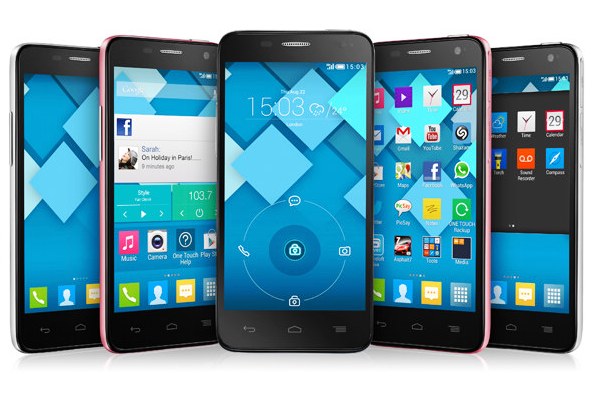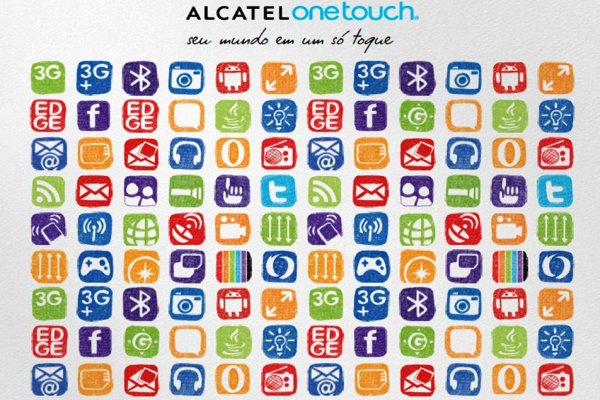Telecom Sector in Brazil: Alcatel Brazil Mobile Phones
The President of Alcatel Brazil Mobile Phones gives an overview of the mobile sector in Brazil and talks about Alcatel’s strategy and challenges in the country. Mr. Machado also shares his vision for the future of the company.
Interview with Marcus Daniel de Souza Machado, President of Alcatel Brazil Mobile Phones
Can you give us an overview of the mobile sector in Brazil?
Thank you for the opportunity to speak to your viewers. To begin with, the market size for 2014 is around 60 million units in volume. As you know, the Brazilian mobile sector already has a bigger penetration than its population. We currently have around 270 million users against a population of 200 million people, so the penetration and the density of the mobile telecommunications sector in Brazil is already much higher than 1. Therefore we are mostly talking about the revision of the installed base and the upgrade of the current users to smartphones, as well as technology update.
In the last three years we grew from zero to 150 million dollars revenue. Now we have 50 employees because we continue to be importers, not including the factory employees. For 2014, we plan to double our revenue and also to reach around 10% market share in Brazil.
Brazil is a high-potential market in this sector but at the same time it is very competitive. What does Alcatel do to lead in this market?
Brazil is a very good market but a very competitive and difficult one. Everybody coming into Brazil must be very aware of that because we have a lot of regulations, taxes, and a very competitive market. What Alcatel did when they decided to be more aggressive in Brazil three years ago, was firstly to hire people who knew the market. We also made a strategic marketing plan in order to decide what we would do in order to grow for the first three years. We decided to have a strong after-sales support which is really needed in Brazil, first because of the law and also because we want to respect the end-user, the consumer. Secondly, we decided to have local inventory in order to ship immediately to the customers so we could sell out as quickly as possible and then replenish the inventory again. We also decided to bring to Brazil very competitive products in order to meet what we thought were the user needs.
We are always very concerned about after-sales, local inventory and having good products to meet what the market demands are. Using these principles as our foundation, what Alcatel did over the first three years in Brazil was to work to offer and to open all possible channels that we already knew we could have in the telecommunication sector. Currently we sell to all the carriers in Brazil, all distributors, all retailers that buy directly, and we also sell to all specialized channels, to supermarkets, and online telecommunication channels. So after three years, I can say that measured by IDC, the international consulting company, we have around 8% market share in Brazil in volume and we are leading the feature phones sector, which is the non-smartphone sector.
Also, as the smartphone sector last year was approved by the government to receive special benefits, we decided to open a factory in Brazil. In the last quarter of 2013 we opened it in Manaus in the north of the country which is a region that also receives special benefits for factories in telecommunications. In Q4 we also began to offer locally-manufactured smartphones in Brazil in order to meet this change in the telecommunications market from the simple products to more sophisticated products like smartphones. For 2014, we are planning to launch even more smartphone products to increase the number of SKUs in order to offer to all segments in the market and to continue importing from our factory in China the simple products which also have an interesting market size in Brazil.

As you were mentioning you achieved a lot of growth in Brazil in only three years. Can you give us some numbers, such as the number of employees?
Until last year, we were basically importers as we launched our factory only in Q4, but in the last three years we grew from zero to 150 million dollars revenue. Now we have 50 employees because we continue to be importers, not including the factory employees. For 2014, we plan to double our revenue and also to reach around 10% market share in Brazil. Basically, we already have a 50% internal share of smartphones and tablets.
With all this growth, you must also have challenges. What are the major challenges you are facing?
The biggest challenges begin with knowing how to deal with Brazil – its regulations and the details of the sector. We know telecommunications, we know Brazil, and we know all the difficulties, possibilities and opportunities that Brazil can offer. In the last three years, we first developed our team. We had to develop very specific teams of supply chain, after-sales marketing and sales. We were developing a team, developing infrastructure, developing systems, developing channels, and increasing the interest and culture of our customers in buying Alcatel.
After three years, I can say that with the opening of our factory last quarter, in only three months, we already reached a certain market that demonstrates the trust that the customers have in our brand and in the quality of our products. For 2014, I think that the market will demand more smartphones and we have interesting products with an interesting price and very good quality. Also with the simple products that we call the feature phones, we can continue importing from China and offering the same infrastructure and quality that we offer all our customers. This year we want to increase the number of locally-manufactured products, increase the number of imported goods, and also continue with the very high level of after-sales services that we offer, and also develop the marketing activities in order to increase our brand awareness.

So you want to keep this relationship with other countries, with China?
This is not a relationship specifically. Our headquarter is in China and we belong to a very big Chinese company called TCL Communications. Our company is number one in China in a lot of products. We sell their mobile phones, refrigerators, televisions, and many other products. Specifically here in Latin America, we offer mobile phones under the brand Alcatel which is a French-based brand for which TCL has the rights. So we have the relationship with our headquarters in China and we also deal with other Alcatel branch offices in Latin America. Our headquarter in Latin America is in Mexico. Brazil is an important specific region representing a large volume and Latin America is very important for the company.
What is your strategy for the next five years?
Basically for the next three to five years, we want to consolidate our brand and build a customer culture that trusts even more in our brand. After we do that, everything will come together. Of course we need to have our infrastructure ready, including teams, logistics, supply chain, importation, and factory but if you don’t have a brand when you begin having local manufacturing together with offering more sophisticated products, the branding is a very important thing. Simply speaking, the plan for the next five years is to consolidate our brand so that we grow even more the business and even increase our product line.

Do you have a message you would like to share, in particular regarding B to B channels?
We know the B to B channels that work with the telecommunications business in Brazil and also all other channels that we connect with. I would like to say that we need interest in our B to B channels in order to support our brand and to be business partners. The B to B channels basically work in Brazil and many other countries like partners which we need to make this through and we work as a chain in order to reach the end-user, the final consumer, in the best way that we can. We are a very ethical company and very enthusiastic about offering the best products as quickly as possible to the end-user. We trust our business partners in all of the chains, not only telecommunications, to work together in order to achieve that.
FAIR USE POLICY
This material (including media content) may not be published, broadcasted, rewritten, or redistributed. However, linking directly to the page (including the source, i.e. Marcopolis.net) is permitted and encouraged.